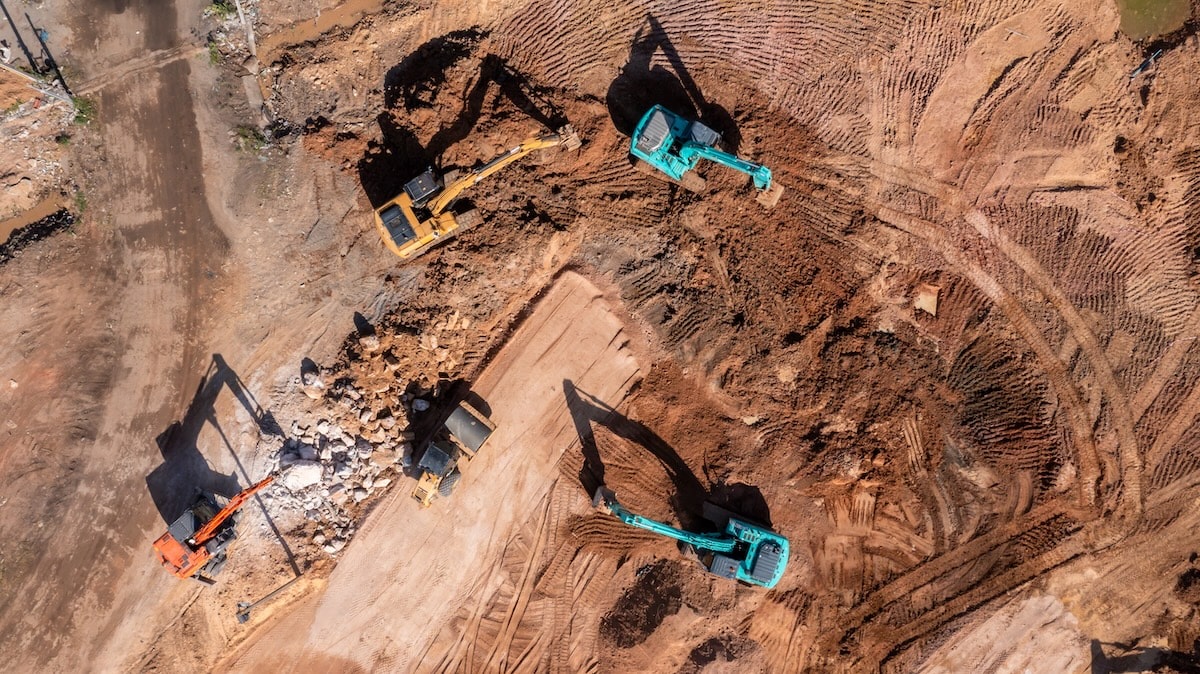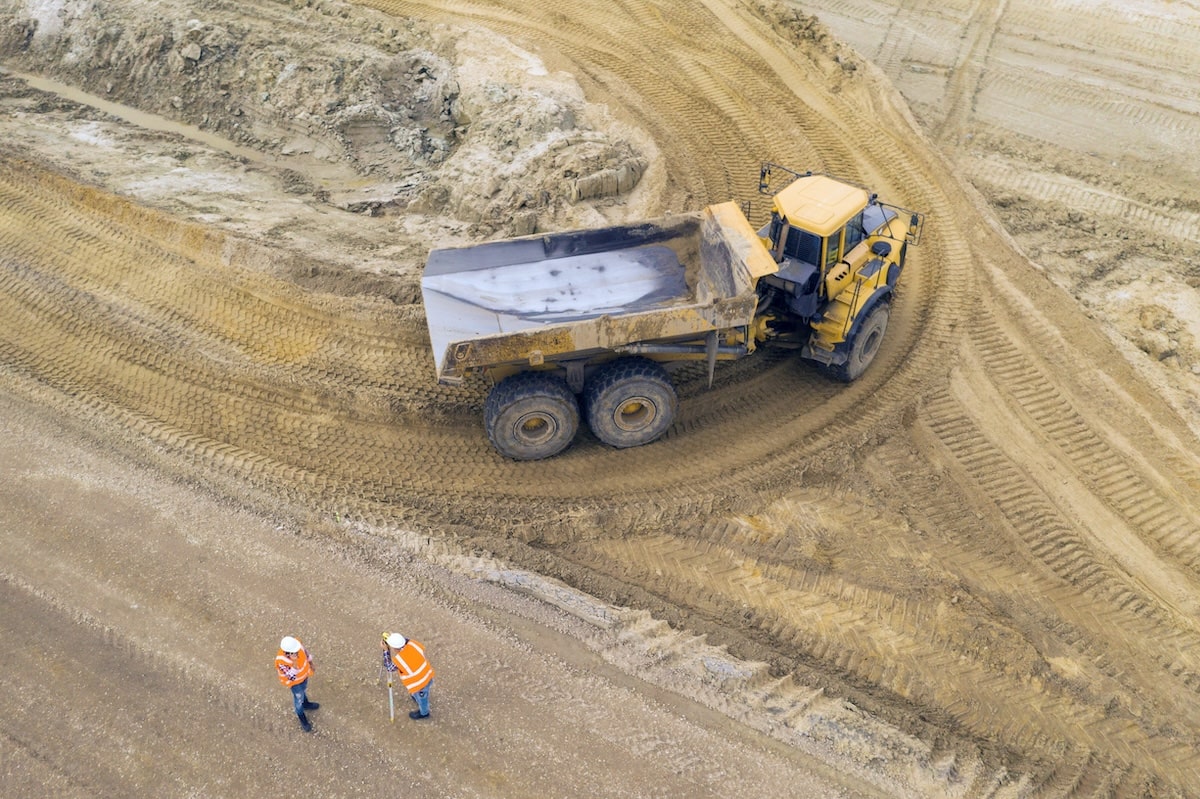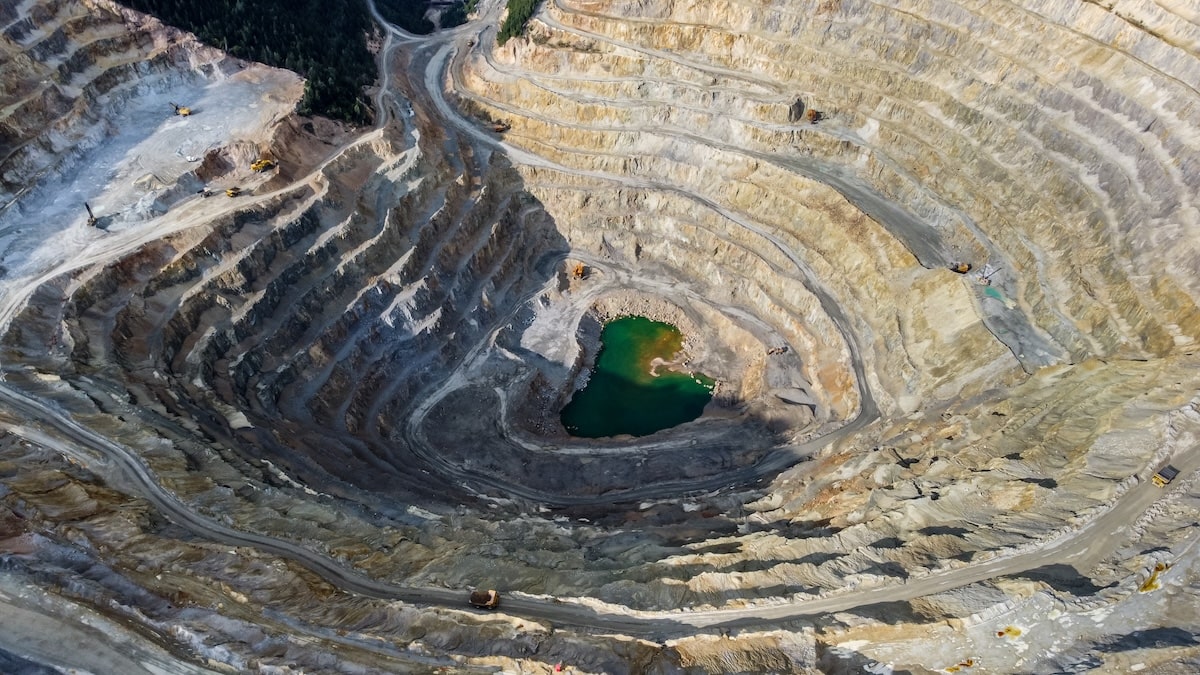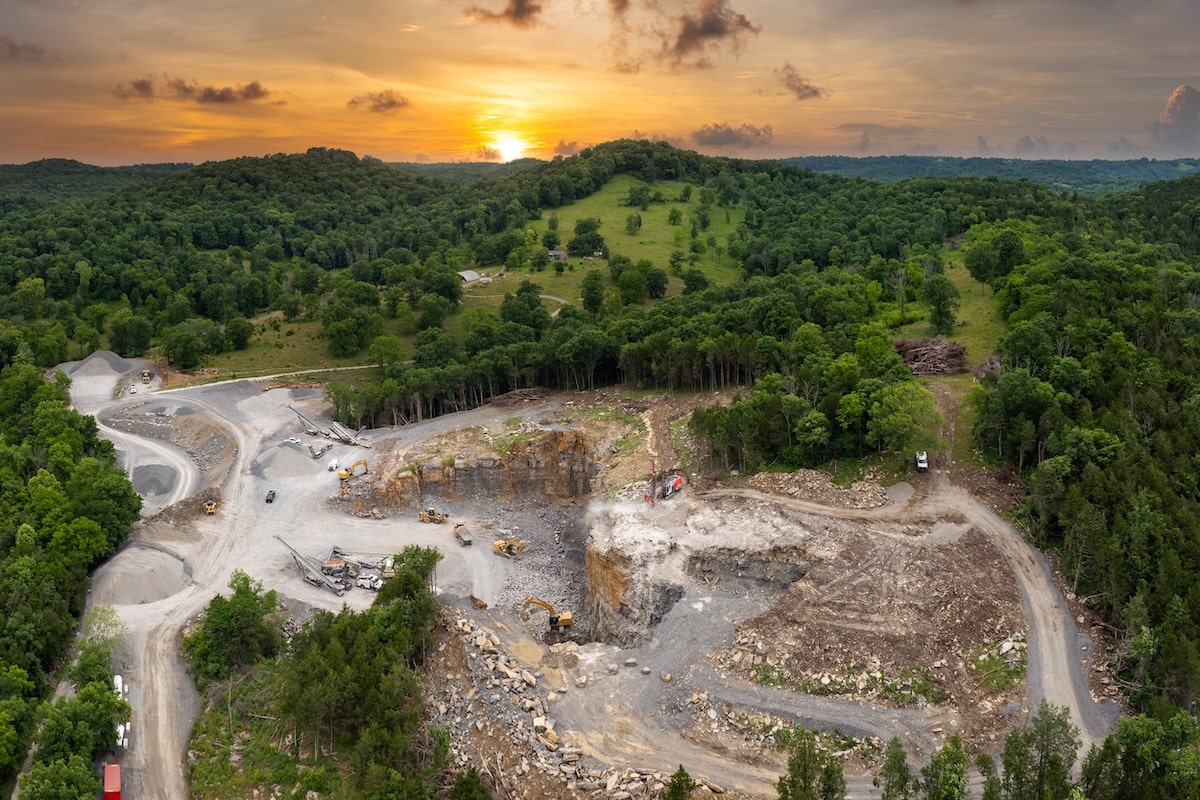Intro
DBA Silencing is headquartered in a town called Port Alberni and we’re generally pretty popular with the people in our community. They like that, although we’re often busy with large corporate orders, we’re willing to make custom mufflers for local fishing trawlers and powder coat parts for their vintage vehicles. They appreciate that we’re easy to deal with and that we stand behind the products and services that we offer. They applaud the fact that our team is both diverse and inclusive. They salute us for putting bread on a lot of tables in The Alberni Valley. And they’re grateful for our support of local sports teams and charitable events.
All that said, we are occasionally approached by eco-conscious individuals who question our connection to mining. Mining is dirty, they say, and wrecks the environment. They suggest that perhaps we should manufacture wind turbines instead. While we certainly understand why some people hold this view, we hold our heads high here at DBA Silencing. We believe that, when we assemble components such as mining truck mufflers, we’re helping make the world a better place. In this blog post, we’ll explain why it is we feel this way.
Contributions Of The Mining Industry
Mining is more than just digging up rocks. In fact, it’s fair to say that the mining industry has been essential to human progress for thousands of years and – in some ways – its importance has only grown as civilization has advanced. Right from the very beginning, people have relied on materials extracted from the earth to build tools, develop technology, and create the foundations of society. Mining provides the raw ingredients for nearly every aspect of human activity and is, in many respects, the starting point of modern life.
Looking back, it’s easy to see that human progress has been linked to mining every step of the way. The Stone Age, The Bronze Age, and The Iron Age are all defined by the materials that people learned to extract and to utilize. These discoveries gave rise to more effective tools, new forms of construction, and the ability to more successfully farm, travel, and defend settlements. One might reasonably suggest that every leap forward in human history has been powered by metals and minerals taken from the ground.
Fast forward to today, and mining is at the heart of contemporary civilization. Mining provides not only the steel that supports skyscrapers and the copper wiring that powers our homes, but also the aluminum that makes air travel possible and the gold employed in electronics. Without mining, there would be no cars, trains, or airplanes; no computers, phones, or medical equipment; no bridges, highways, or power grids. The mining industry furnishes us with the materials that form the backbone of infrastructure, technology, and global trade.
Mining is, moreover, a powerful driver of economic growth. The industry supports millions of jobs worldwide, from miners and engineers to purchasers and manufacturing company team members {such as those of us here at DBA}. It contributes significantly to national economies by generating revenue, fuelling exports, and attracting investment. In many regions, mining creates opportunities that sustain neighbourhoods, providing livelihoods and boosting local businesses.
Mining also plays an important role in the development of new technologies. Many of the innovations we now take for granted – communication systems, say, and healthcare devices – are only possible because of materials extracted from the earth. Present-day electronics rely on materials such as copper, silver, and rare earth elements. {If you’re interested in REEs, we cover them in detail in our blog post “Mining Truck Parts & Rare Earth Elements”}. Titanium and nickel, meanwhile, are indispensable in aerospace, and countless other minerals enable everything from construction machinery to medical imaging equipment. As technology continues to evolve, mining supplies the resources needed to turn ideas into reality.
It should be clear by now that, without mining, the world as we know it would not exist.
Improvements In The Mining Industry
Having discussed the ways that the mining industry has been central to the development of our species, let’s turn to its recent push to become more environmentally responsible. This push has been characterized, globally, by three key initiatives.
1. Emission Reduction
Many mining companies are now focussing on lowering emissions and energy use. Extraction sites that once depended heavily on diesel and coal power are shifting, more and more, towards renewable energy sources such as solar, wind, and hydro. Electric and hybrid mining trucks are also being introduced to cut greenhouse gas emissions. As an OEM supplier for Liebherr Mining Equipment, DBA Silencing is actually providing some of the parts that Liebherr needs to make 475 zero-emission mining trucks for an Australian firm called Fortescue.
2. Water Management
Water management has become a top priority for many mining organizations. Mining requires large amounts of water, and syndicates are investing in technologies that recycle and reuse water within their operations. Some sites have implemented closed-loop systems that dramatically reduce the quantity of H2O required. Others are treating wastewater so it can be safely returned to rivers or even used by nearby localities. This shift helps protect ecosystems and ensures that mining companies aren’t competing with population centres for liquid resources.
3. Land Rehabilitation
Modern mining practices place a heavy emphasis on land rehabilitation. Instead of leaving scarred moonscapes in their wake, companies are now restoring landscapes by replanting vegetation, reshaping landforms, and creating habitats for wildlife. In some cases, former mines have been transformed into parks, wetlands, or agricultural zones.
The Positives Of DBA Mining Truck Mufflers
We hope that, having read the first two sections of this piece, you’ll have concluded that
{a} mining is a necessary activity, and
{b} mining companies are working in a laudable manner to limit their impact on the planet.
Let’s turn now to some specific DBA components: our mining truck mufflers. Do we have positive feelings about manufacturing these particular parts? You bet we do. There are several reasons for this.
First, our mining truck mufflers are part of the damage mitigation we mentioned earlier. As we outlined in our blog post “DBA Mufflers & Noise Control In Mining Operations”, our mining truck mufflers are exceptionally effective when it comes to reducing racket. This reduces health risks to mine site employees, and helps ensure that mining operations aren’t disrupting local ecosystems and disturbing nearby towns or cities. Should you be keen to delve into the mechanics of noise attenuation, you may wish to read up on constructive and destructive interference in our piece “Efficient Mining Truck Muffler Design”.
Second, DBA mining truck mufflers are part of DBA exhaust systems. And, due to our proprietary composite shell technology, DBA exhaust systems are some of the safest exhaust systems in existence. {If you’reinterested in learning more about our unique approach to thermal management, you may wish to check out our article “Exhaust Blankets vs. Composite Shells”.} By helping to limit truck fires, DBA’s aftermarket mufflers reduce operator injuries and prevent blazes that not only emit toxic fumes but could also spread and morph into full-on wildfires.
Outro
In conclusion: we’re proud! We’re proud to be part of the global mining industry supply chain and we’re particularly chuffed to be manufacturing top-quality and cost-effective components such as DBA mining truck mufflers. If you wish to ask about our products, or you’d like to weigh in on the subject of this piece, you can reach us anytime at [email protected]. We’re also available by phone, at 1-800-661-5886. And, although we specialize in noise dampening here at DBA Silencing, rest assured that we’ll speak up nice and clear when you call.



